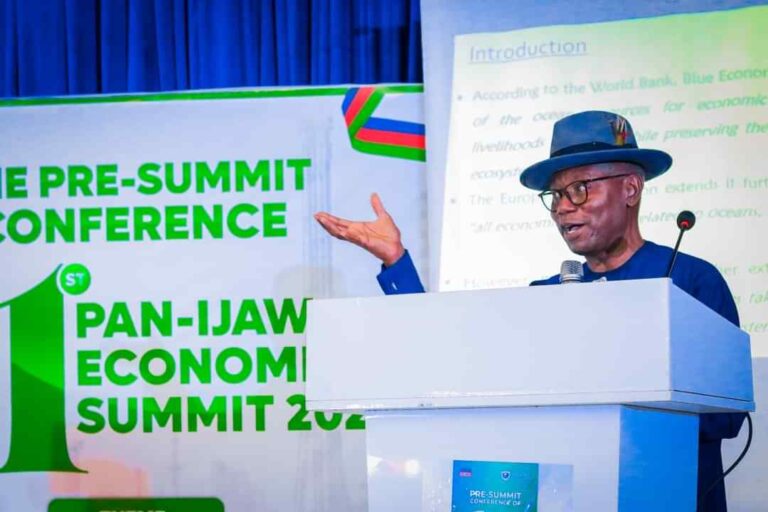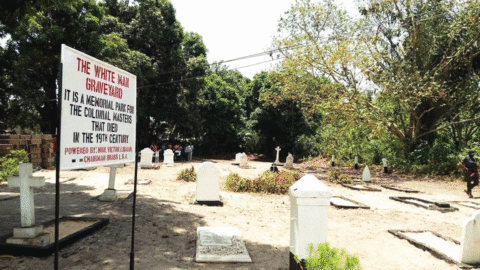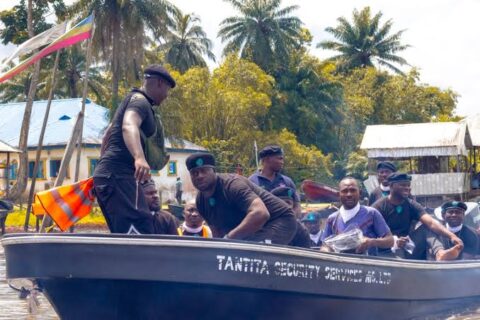National Deputy President of the Nigerian Chamber of Commerce, NACCIMA, and Chairman/CEO Elshcon Group of Companies, Dr. Emi Membere-Otaji, has said there is no better time for Ijaw Nation and the Niger Delta area to sustainably harness the full commercial benefits of the blue economy so as to diversify and grow her economy, while preserving the biodiversity of the ocean and waterways but now.
Dr. Emi Membere-Otaji, a medical doctor turned business czar made the assertion while making a keynote presentation as guest speaker at the Pre-Summit Conference of the 1st Pan-Ijaw Economic Summit, held at the DSP Alamieyeseigha Banquet Hall, Government House, Yenagoa in Bayelsa State.
He emphasized the need for deliberate policies to be put in place for mangrove conservation and restoration, community led eco-tourism initiative, public private partnership (PPP) driven innovations on sustainable fisheries and aquaculture initiative, including port development and marine transportation policy to develop a national marine transportation policy that focuses on expanding and modernizing ports in Ijaw land, such as Bonny and the Brass Island, among others to actualize this.
With the Theme: UNLOCKING POTENTIALS AND OPPORTUNITIES IN MARINE AND BLUE ECONOMY IN IJAW LAND AND THE NIGER DELTA’, he defined blue economy with reference to the World Bank, as “sustainable use of the ocean resources for economic growth, improved livelihoods and jobs while preserving the health of the ocean ecosystem”. He however, further identified definitions that extended the scope of Blue Economy “as economic activities taking place below, on, or adjacent to the ocean, or aquatic systems.
In view of this, Dr. Membere- Otaji a former President of Port Harcourt Chamber Of Commerce noted that Nigeria is well positioned in the domain of the Blue Economy, even as he observed that the marine and blue economy represents a powerful catalyst for sustainable economic growth and development in Ijaw land and the broader Niger Delta. According to him with its vast coastal resources, including fisheries, aquaculture, renewable energy, and mangrove ecosystems, the region is well positioned to tap into these opportunities.
However, he stressed that realizing the full potential of the marine and blue economy in Ijaw land requires a strategic approach that balances economic activities with environmental sustainability. Dr. Otaji said: “In order to achieve this we must navigate from artisanal fishing to industrial trawl fishing, put in place well equipped jetty/port, entrench a political will that will ensure safe inland waterways transportation among others.”
Speaking on the inherent opportunities in the region, Dr Emi Membere-Otaji who is a recipient of two strategic national honours namely, Office of The Order of The Niger (OON) and National Productivity Order of Merit (NPOM) Award noted that – The mangroves, estuaries, and coastal ecosystems of Ijaw land offer immense potential for marine biotechnology. According to him, research into the medicinal properties of marine organisms, such as algae, corals, and microorganisms, could lead to the development of pharmaceuticals, nutraceuticals, and cosmetics. Similarly, he disclosed that Ijaw land’s unique landscapes, biodiversity, and cultural heritage presents significant opportunities for eco-tourism, adding that the mangrove forests, creeks, and riverine environments offer attractions for eco-conscious tourists, bird watchers, and adventure seekers. While the rich cultural history of the Ijaw people, including traditional watercraft and folklore, adds a distinctive appeal.
Furthermore he pointed out that the coastal region of the Niger Delta holds huge potential for renewable energy development, particularly offshore wind and tidal energy. Renewable energy projects according to him can reduce reliance on fossil fuels, diversify the region’s economy, and provide clean energy to communities that currently lack access to stable electricity.
The Kalabari born Ijaw who holds the traditional title of “DEIN PIRIBO II OF KALABARI IJAW KINGDOM” however pointed out inherent challenges that can militate against achieving these objective including environmental degradation like oil pollution, deforestation, and industrial activities that have severely damaged the mangroves and coastal ecosystems in the Niger Delta. He lamented that the destruction of these ecosystems undermines the sustainability of fisheries, tourism, and other blue economy sectors.
Again he observed that infrastructural deficits such as roads, electricity, and ports, limits access to marine resources and hampers the growth of sectors like aquaculture and tourism, even as lack of reliable power supply and transportation networks also discourages investment.
In an interesting conclusion, Dr Emi Membere-Otaji onserved that because the Ijaw territories in the six core Niger Delta states form the bulk of Nigeria’s coastline, the marine and blue economy mainly revolves around Ijaw tribal land and it’s people.
The well attended two day event attracted the creme’ de la creme’ of the business world of Ijaw Nation, strategic captains of industry, critical stakeholders, traditional rulers, top government officials, and students and women groups.
Also read: Bayelsa Communities Lament Over Fresh Oil Spill from Oando Pipeline






